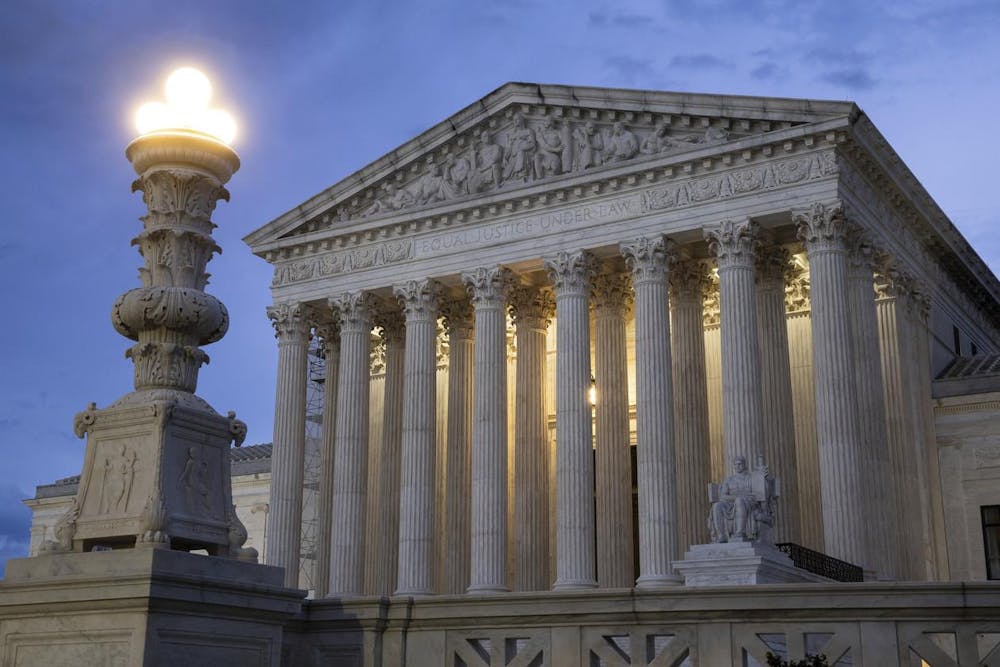On June 29, 2023, the Supreme Court ended the decades long precedent of race-based admissions by a vote of 6-2.
This isn’t to say that race will not be used as a contributing factor. It will. What this ruling says is that it cannot be used as a primary or determining reason.
The issue is that certain races were being rejected by admissions because of stereotypes, the most glaring being Asian students who applied to, and were rejected by Harvard University for scoring low in the “personality” portion of their applications.
This, however, was not done on a case-by-case basis. Asian applicants unilaterally scored lower solely because of their race.
The problem with Harvard admissions lies in the universal application of their discrimination which can lead to lowering standards for other groups, producing less qualified candidates for jobs.
Jakob Miller, Taylor University associate professor of political science, said the 14th Amendment was written to ensure every citizen has equal protection under the law.
Creating quotas conflicts with the 1978 case University of California v. Bakke, where it was determined that race quotas were unconstitutional.
“I would love to see Harvard have a few spots reserved, but the vast majority should be merit based,” Nicholas Kerton-Johnson, Taylor University associate professor of international relations, said.
When the admissions department is more focused on quotas than merit it can lower the standard of qualifications.
In Charles Dunst’s “Defeating the Dictators” it is cited that legacy applicants are roughly five times more likely to be admitted, and one third of legacy freshman came from homes bringing in $500,000 or more annually.
“They could have gotten rid of alumni favoritism, but they did not,” Jakob Miller said. “They needed the money, and Harvard and other universities were not going about it in the correct way.”
Essentially, the wealthier and more well connected someone is, the higher their chances are of being admitted, even if other applicants have more impressive résumé.
Kerton-Johnson said there has been a decrease in the quality of medicine in South Africa. This is due to wealthier individuals and those who have been selected because of their ethnic background getting into prestigious institutions without being adequately prepared or qualified.
“Speaking as a South African, affirmative action can be a useful tool to alleviate past injustices, but it needs to be used sparingly and certainly not on a blanket level,” Kerton-Johnson said.
When this sort of discrimination is allowed it has the potential to leach into other institutions.
The way Harvard ran admissions was a violation of the 14th Amendment and the court made the correct decision.
“The scale of the limitation is what worried me, it was very broad and therefore discriminatory, " Kerton-Johnson said. “Equality before the law needs to be protected as well.”
This sentiment was best embodied in the Civil Rights Movement of the 1960s.
All citizens, regardless of ethnic background, are entitled to fair treatment under the law. The Harvard case is but one example of how discrimination can appear and the proper way in which it should be rooted out.
“The principle then lies about like a loaded weapon ready for the hand of any authority that can bring forward a plausible claim of an urgent need,” Robert Jackson, former Supreme Court justice, said. “Every repetition imbeds that principle more deeply in our law and thinking and expands it to new purposes.”





